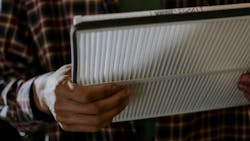U.S. President Trump to Roll Back Proposed Auto Tariffs
U.S. President Donald Trump will be rolling back some of his proposed tariffs on the automotive sector, reports Reuters.
The news follows a letter sent last week by a coalition of U.S. auto industry groups representing GM, Toyota Motor, Volkswagen, Hyundai, and others, urging against a 25% tariff on imported auto parts.
“Most auto suppliers are not capitalized for an abrupt tariff-induced disruption. Many are already in distress and will face production stoppages, layoffs and bankruptcy,” stated the letter. “It only takes the failure of one supplier to lead to a shutdown of an automaker's production line.”
Through an executive order, the U.S. will provide credits and relief from other levies on parts and materials. The 25% vehicle tariffs will offer credits for up to 15% of the value of vehicles assembled domestically, which may be applied against the value of imported parts.
A senior administration official said this would lead to automakers importing duty-free parts worth approximately 3.75% of the sticker-price value of domestically produced cars sold in the first year, and 2.5% in the second year. Retroactive to April 3, the benefit will be phased out in its third year.
In addition, autos and parts subject to these tariffs will be exempt to other tariffs, including 25% duties on Canadian and Mexican goods, 25% levies on steel and aluminum, and 10% duties on most other countries. Duty-free exemption is also offered to North American parts compliant with the U.S.-Mexico-Canada trade agreement.
Tariffs on Chinese parts will remain in place, though, and will still face tariffs of at least 145%, as well as any prior duties.
The move has been heralded by automakers, though some anxiety remains in the industry, noted Lenny LaRocca, KPMG’s U.S. auto industry leader.
“Automakers would welcome any exemption, but the volatility continues with the trade policy uncertainty,” said LaRocca. “As we have seen, tariffs can be proposed and revised on short notice. That also doesn't change the broader business strategy questions facing automakers.”
About the Author
NOLN Staff Reporters
The NOLN staff reporters cover the quick maintenance industry every day, from top to bottom. For news inquiries, please contact [email protected].
